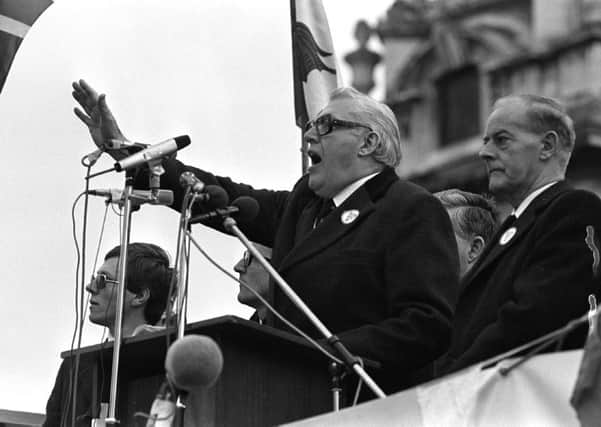Declassified files: Paisley admitted unionist reaction to Anglo-Irish was a mistake


In the wake of the 1985 agreement – which had stunned an unprepared unionism – the DUP and UUP united in opposition to Dublin being given a consultative role on the internal affairs of Northern Ireland.
The parties broke off contact with ministers and began a campaign of civil disobedience which ranged from disrupting the work of local councils to mass protests, a refusal to pay for TV licences or dog licences and the infamous ‘invasion’ of Clontibret by a group led by the DUP’s Peter Robinson.
Advertisement
Hide AdAdvertisement
Hide AdPublicly, unionists insisted that they would not back down until the agreement was dismantled, but in reality over the course of several years they gradually resumed council business, quietly paid for licences and resumed contacts with ministers in an attempt to use the political process to unravel the agreement.
Now a minute of a meeting between Dr Paisley and Mr Major sheds new light on his thinking in the early 1990s as the DUP and UUP re-engaged with the other parties in talks about restoring devolution.
The document, which has been declassified at the Public Record Office in Belfast under the 20 Year Rule, records that Dr Paisley candidly told the Prime Minister, in the presence of Ulster Unionist leader Jim Molyneaux and the Secretary of State for Northern Ireland, that “there was no question of them walking away [from the then-tentative talks].
“They had run away from participation in Westminster and local councils in the past, and that had been a mistake”.
Advertisement
Hide AdAdvertisement
Hide AdThe admission is particularly striking because in 1987, just two years after the agreement, Dr Paisley publicly slapped down his then-deputy Peter Robinson – leading to Mr Robinson’s resignation as deputy for a period – after he and senior UUP figures drew up a report whose central conclusion was similar to that articulated by Dr Paisley in 1992.
The ‘task force report’ proposed immediate talks with the Government at that point, saying that “those who counsel against negotiation must make plain the alternative means by which they propose to determine the future of the people of Northern Ireland”.
At the same meeting between the Prime Minister and the unionist leaders in 1992, Mr Major also forcefully put it to the politicians that they had a responsibility to help defeat terrorism through politics.
The minute of the meeting records Mr Major as having said: “All his adult political life had been marked by the renewed troubles in Northern Ireland... the violence was unforgivable. He had felt terrorism at first hand in the mortar attack on Downing Street.”
Advertisement
Hide AdAdvertisement
Hide AdIt went on: “Whenever we found ourselves in a position of political stalemate with doors being closed, we risked opening doors to terrorism and violence.
“It was a very high priority to stretch to the limits our tolerance to try to get a statement which would salve this running sore. The problems of Northern Ireland were high on his agenda. They were not a tiresome, optional extra.”
Dr Paisley, the minute recorded, “did not agree with the Prime Minister that success in these talks would deal with the violence. That depended on the strong exercise of military force.”